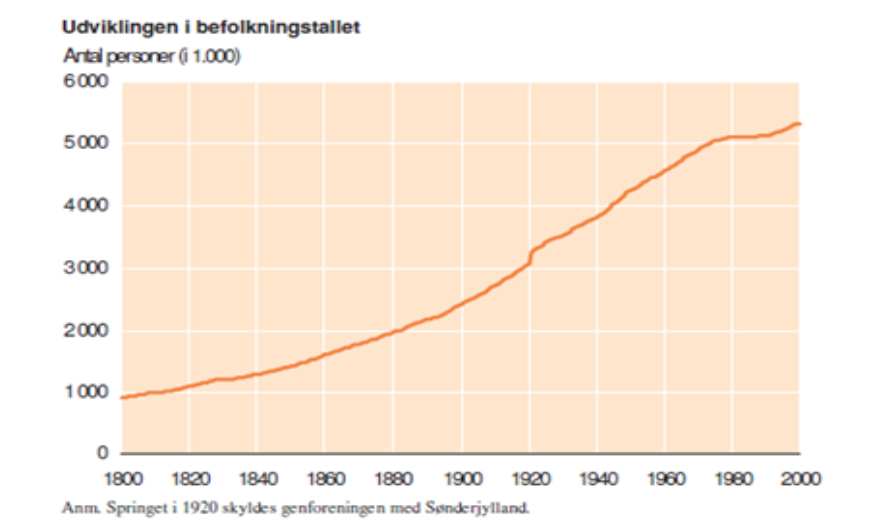The importance of the energy base
Emil Urhammer & Inge Røpke
One of the important differences between ecological economics and mainstream economics is the interpretation of the role of energy in overall production and economic growth. The following extract taken from a book on mainstream economics may help illustrate this difference.
”But the term society cake is more appropriate than most would probably expect. In general, when a baker produces cakes, the same factors are required as when creating GDP.
It requires a large amount of raw materials; typically flour, sugar, cream, butter and cocoa. Employees, such as a baker’s assistant and a shop assistant, are also needed in the store. This is the labour. A dough-mixing machine and, of course, an oven, are also required. The baker also typically has a van to collect and deliver goods. These machines are referred to as the capital stock. But one of the most important factors is the recipe and the process that produces the cake. This is called efficiency or productivity and refers to how fast and efficiently the cake is produced.
If the baker has an excellent computer-controlled mixer and a very good oven, the process will be much faster and easier than if using old and slow procedures, where everything is done by hand and without modern technology. If the baker has a good education and has baked the same cake many times, it can probably also be produced more efficiently and quickly because he has a lot of experience about how to optimise the whole bakery.” (translated from Pedersen & Skovgaard: Økonomisk vækst og velstand i Danmark, Jurist- og Økonomforbundets Forlag 2017, pp. 18-19).
In the above, socioeconomic production is explained by using the example of a baker’s, but the word ‘energy’ is not mentioned at all. This is despite the fact that producing the raw materials, powering the oven and mixing machine and transporting the goods all require energy. Thus energy is involved at all stages of the production process, but this factor is omitted in the narrative. Instead, the quality of the capital stock, the manufacturing process and the baker’s education are highlighted as the important factors of production. This is not wrong, but without energy it is not possible.
 Illustration: Sonja Winckelmann Thomsen.
Illustration: Sonja Winckelmann Thomsen.
When mainstream economists explain what results in growth, they emphasise labour, capital and technological development. Technological development is presented as if the only important factor is having a good idea. However, a good idea is nothing in itself because it depends on energy – in most cases fossil fuels. This has been forgotten in mainstream theory about economic growth, whereas it is emphasised as being central in ecological economics. Thus an important element in ecological economics is emphasising that technological innovation and energy are inextricably linked. Technological innovation, which mainstream economists emphasise as being crucial for economic growth, is completely ineffective without energy. Without fossil fuels, the industrialisation and massive growth in the industrialised world since World War II would not have taken place. Therefore, we face major challenges in the future because climate change demands that we find a new, renewable energy base.
[otw_shortcode_info_box border_type=”bordered” border_style=”bordered”]Thermodynamics and energy quality
In the field of ecological economics, the discipline of thermodynamics plays an important role. This is due to the fact that thermodynamics provides an understanding of the concept of energy and the benefit people can have from different energy sources. Thermodynamics encompasses a number of laws, but in the following, we only mention the first and the second, which are particularly important for ecological economics.
1.The first law of thermodynamics states that: Energy can neither be created nor destroyed; it just changes form.
If we take petrol that is burned in a car engine as an example; according to the first law, there is no creation and no energy is lost in this process. What happens is that the chemical energy in the petrol is transformed into mechanical energy: the pistons move up and down, the drive shaft rotates, the wheels rotate, and the car moves forward. All this mechanical energy ultimately becomes heat – molecular mechanical energy. In short, the chemical energy has not disappeared; it has just become heat (molecular motion).
2.The second law of thermodynamics states that: Every time energy changes into a new form, an ‘energy loss’ occurs.
However, ‘energy loss’ does not mean that the lost energy has disappeared, it just means that it has turned into a less useful form. Let’s continue with the example above. A certain amount of chemical energy is used to move the car from A to B. One can now say that the energy has performed a useful job, but during the process, all the chemical energy in the fuel has become heat. This heat consists of molecular motion in the surroundings, which is very difficult to exploit for a useful purpose. Energy has, therefore, performed a useful task, but a ‘loss’ has occurred during the process.
According to the two ecological economists, Herman Daly and Joshua Farley, the reason why these two laws are important for the economy is that the first law tells us that there is a limited amount of energy available, while the other law tells us that there is also a limit to how many times we can use the available energy. Each time we use energy, it transforms into a form that is difficult to exploit.
In this context, the concept of ‘energy quality’ is important. Energy quality refers to the potential of energy to perform useful work. The easier it is to convert energy into useful work, the higher the energy quality. The waste heat from a petrol engine contains a sizeable amount of energy, but it is difficult to use for practical purposes. The chemical energy in fossil fuel, on the other hand, is relatively easy to convert into useful work. Therefore, one can say that the waste heat is of low energy quality, while fossil fuels are of high energy quality.[/otw_shortcode_info_box]
Energy and population
Another very important aspect of energy and the energy base is the role of energy in population growth. Vaclav Smil, who has worked extensively with the connections between energy, the environment and the population, emphasises that the unprecedented population growth which has taken place in the last 80 years, simply could not have taken place without fossil fuels. This is because energy is indispensable for fundamental survival factors such as food, shelter and work. Industrialised agriculture provided the growing population with the necessary food; urban development provided the necessary housing, and industrialisation created jobs for more and more people – all driven by fossil fuels.
With regards to food production, it is important to stress that fossil fuels are indispensable for modern industrialised agriculture, which uses them to power agricultural machinery, for fertilisers, pesticides (weed control and pest control) and transport. Therefore, we are currently facing a twofold challenge: On the one hand, we need to switch our energy consumption from fossil fuels to renewable energy sources, while on the other hand, the global population is increasing, which makes this challenge particularly difficult. This means that one of the great challenges in the future will be to find out how to feed a growing population without fossil fuels. One of the obvious answers is to try to stabilise the global population at a sustainable level. In many countries, a decrease in the size of the population is considered to be a problem. If the decrease is due to major social problems, widespread alcoholism or genetic damage caused by chemicals, there are of course good reasons to address these problems. However, falling population is not a problem in itself, but rather, it should be seen as a contribution to a sustainable transition. The decrease may give rise to transition problems as a result of changes in the age composition of the population, but it is better to find solutions to such problems than to increase the risk of destroying our own basis for life.
